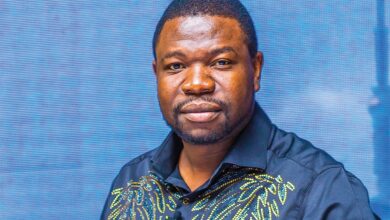Panyatsime Cultural Centre Comes Alive with Vibrant Africa Day Celebration

The Panyatsime Heritage and Cultural Centre in Chitungwiza was a hive of colour, music, and celebration on Tuesday, May 27, as it hosted a vibrant belated commemoration of Africa Day and Culture Month. The event brought together students, educators, cultural advocates, and community members in a powerful display of African pride and heritage preservation.
Learners from Chaminuka, Zengeza Main Primary, and Crowlogy Academy were joined by Ministry of Primary and Secondary Education officials and academics, transforming the cultural space into a living classroom. Senior Education Ministry administrator Solomon Makokisi delivered the keynote speech on behalf of District Schools Inspector Dr Elisha Kujeke, reinforcing the educational and societal value of centres like Panyatsime.
Organised in collaboration with Zimbabwe Intangible Cultural Heritage and the Teaching Artist Institute, the event championed the values of Ubuntu, Africanism, and the preservation of indigenous knowledge systems. Discussions encouraged young people to reconnect with their cultural roots and underscored the critical role of heritage in shaping identity in modern Africa.
In his address, Dr Kujeke emphasized that cultural centres are more than physical spaces—they are custodians of identity, memory, and tradition. He highlighted how Zimbabwe’s heritage-based school syllabus turns culture into an immersive learning experience, where students don’t just study history but live it through song, dance, crafts, and storytelling.
He also praised the role of the community in education, noting that elders and local artists become co-educators, creating a collaborative model where learning extends beyond the classroom and becomes embedded in daily life. With such centres in local communities, the syllabus comes alive, empowering learners with a strong sense of self and purpose.
Heritage Officer Lilyosa Maganzo tackled common misconceptions about Africa, saying that cultural practices like respect for elders and harmony with nature are not backward, but deeply rooted in wisdom. She urged the audience to view these traditions as strengths in an increasingly disconnected world.
One of the day’s highlights was a guided tour of the centre’s traditional village. Local guides offered insights into ancestral customs, traditional architecture, and cultural storytelling, giving participants a deeper appreciation of Zimbabwean heritage.
The commemorations were held under the African Union’s 2025 theme, “Educate an African fit for the 21st Century,” with Zimbabwe adopting its own theme: “Promoting Cultural Diversity, Unity and Peace for Sustainable Development.” Events like this one are part of a nationwide effort to celebrate cultural diversity and promote intergenerational dialogue.
On the sidelines of the event, academic and textbook author Charles Mavhunga lauded Panyatsime’s commitment to community-based cultural education, saying such spaces are vital to fostering a generation that is proud of its roots and equipped to contribute meaningfully to national and global narratives.
As Culture Month draws to a close, the success of the Panyatsime event stands as a compelling reminder of the power of cultural education in building resilient, united, and identity-rich communities for generations to come.




